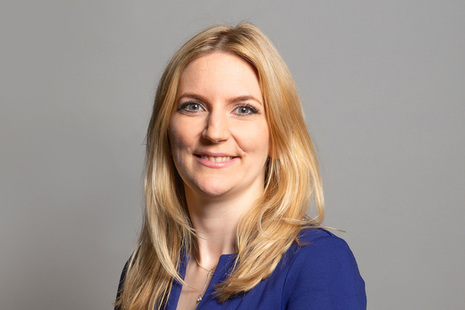Julia Lopez – 2023 Statement on BBC and the Government Role in Impartiality
The statement made by Julia Lopez, the Minister of State at the Department for Culture, Media and Sport on 14 March 2023.
The BBC is a world-class broadcaster, a creative engine and a cultural institution producing some of the best television and radio in the world. The impartiality of the BBC, as a publicly funded broadcaster, goes to the heart of the contract between the corporation and all the licence fee payers whom it serves. That is why the royal charter, which is the constitutional basis of the BBC—along with the underpinning framework agreement—enshrines the need for the BBC to be impartial in both its mission and its public purposes.
The BBC’s mission and public purposes, as set out in the charter, require it to act in the public interest, serving all audiences through the provision of impartial, high-quality and distinctive output and services which inform, educate and entertain, helping people to understand and engage with the world around them. The BBC’s first public purpose is to provide duly accurate and impartial news and information to help people to understand and engage with the world around them. It must also represent and serve the diverse communities of all the United Kingdom’s nations and regions. Both the charter and the framework agreement also explicitly guarantee the independence of the BBC. As such, the Government have no say in the BBC’s operational or editorial day-to-day decisions or staffing matters, including as they relate to the application of the requirement for impartiality.
The Government stand fully behind the requirements of the royal charter. We are clear that the BBC must truly reflect the nation and guard its impartiality in all of its output. The BBC’s director-general has repeatedly said that the corporation’s impartiality is a priority for him and must be protected. We welcome that the BBC accepted the findings and recommendations of the Serota review and is committed to reform through its 10-point impartiality and editorial standards action plan. It is Ofcom, established by the Government as the independent regulator of the BBC in 2017, that is responsible for holding broadcasters including the BBC to account on the impartiality of their news and current affairs coverage, against the broadcasting code under the Communications Act 2003.
In November last year, Ofcom published its annual review of the BBC. It found the BBC’s impartiality to be a key area of concern among audiences and one where they consistently rate BBC news less favourably for trust and accuracy. Ofcom stated that addressing audience perceptions on this matter is challenging, and the regulator recognises that this is a complex area. It will continue to monitor the performance of the BBC and has urged the BBC not to lose momentum in its efforts to address this issue. It remains a priority for the Government to ensure that Ofcom delivers an effective and proportionate regulatory framework that holds the BBC to account while maintaining its creative freedom and operational independence.
In May 2022, the Government launched the mid-term review. This is a new mechanism established by the current charter, focusing on the governance and regulatory arrangements for the BBC, given the reforms that were introduced when the charter was granted. One area of focus in the MTR is impartiality, and it will assess the efficacy of the governance mechanisms and Ofcom’s regulation in ensuring that the BBC meets the high standards that licence fee payers expect of it. It is also an important milestone in our road map for BBC reform, and work is well under way. The charter specifies that the review must take place between 2022 and 2024, and we will publish our findings and conclusions in due course.
The BBC is respected globally. It reaches hundreds of millions of people across the world every week. No other country in the world has anything quite like it. We have been clear that the BBC must place a firm emphasis on accuracy, impartiality and diversity of opinion. It can never be the BBC’s role to judge, or appear to judge, the diverse values of the people from across the country it serves. In the era of fake news, public service broadcasting and a free press have never been more important, and the BBC has been and should be a beacon that sets standards to which others can aspire.

